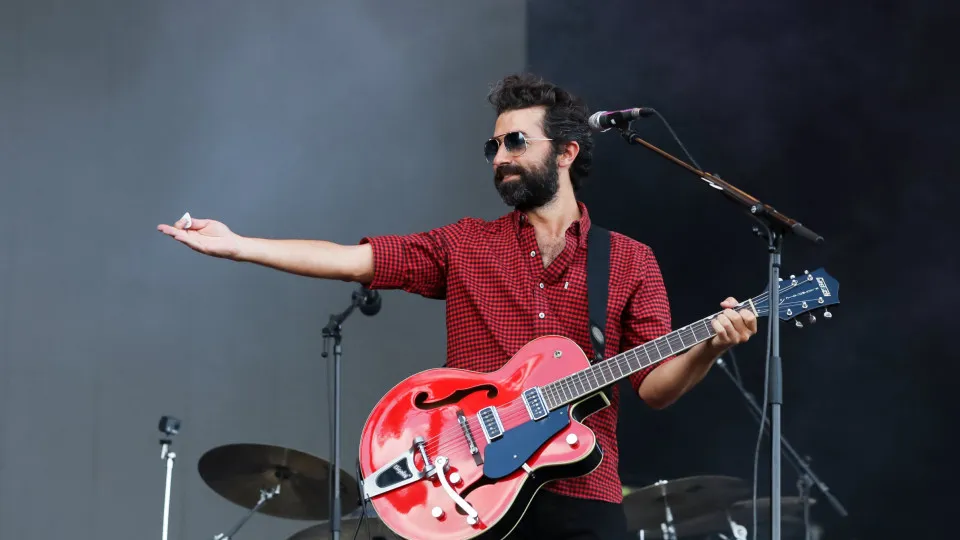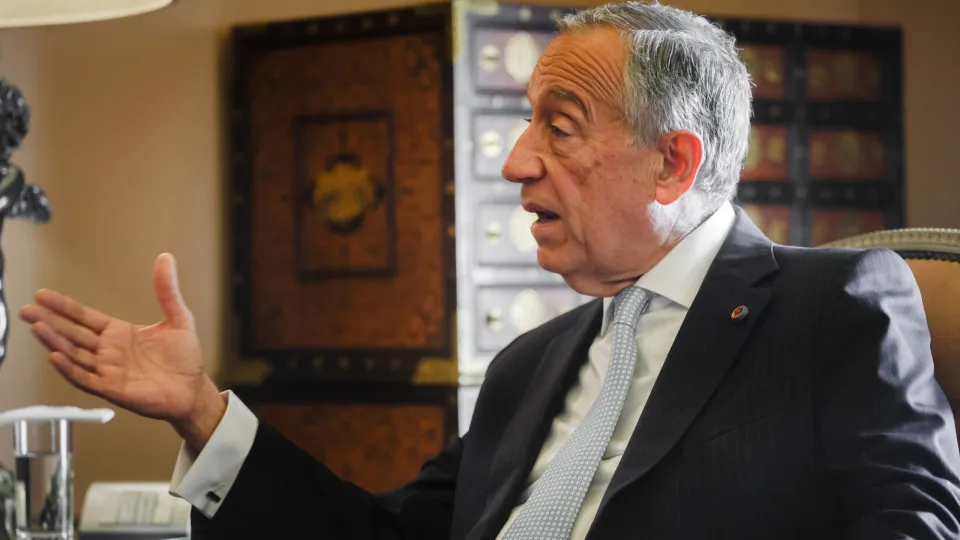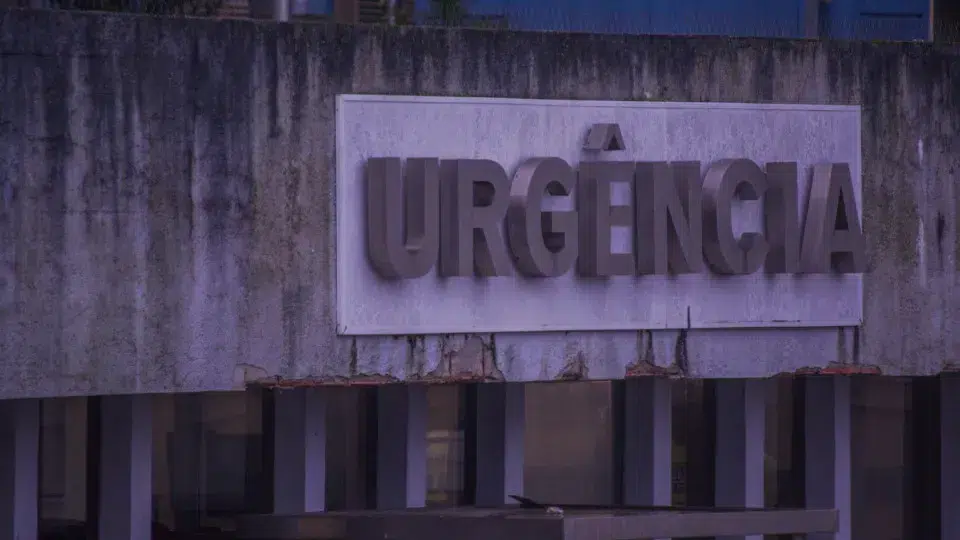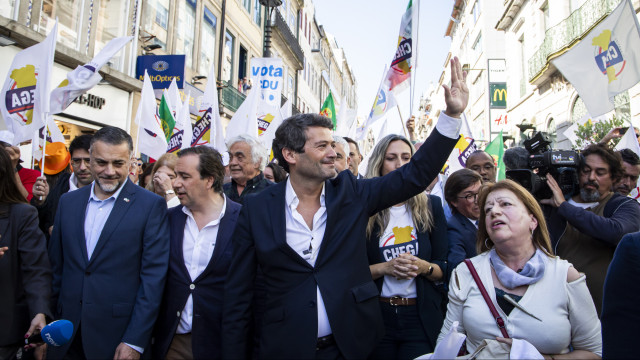
In an interview, Tiago Bettencourt shared that the process of creating his new work “was a search” for a place he wanted to reach without knowing how.
“It was a very long search, an experimentation that took quite some time – trial and error – until I understood where I wanted the songs to go,” he said.
The result is a “much more electronic” album, made almost entirely in his rehearsal/studio space, which he named A Toca.
“It has an organic side of me playing a lot of things live, but the base is very electronic. I had to learn to work like this because the arrangement method has nothing to do with what I’m used to doing,” he stated.
The 15 days he spent in April of last year in an artistic residency in a mountain chalet in Switzerland were “essential” for him to discover the direction he wanted to give the new work.
“I think the whole imagination of the album is heavily influenced by the sounds those landscapes suggested to me. When I returned to Lisbon, I already had a clearer idea of where I wanted to go,” he shared.
Tiago Bettencourt plays the songs in “infinitely different ways,” and the eleven that make up “Foz” are no exception.
“All the songs here I can play on guitar, piano, with a band. I really like songs, and I don’t want to ruin them; I always want to discover new ways for the songs to work. And this was one of them,” he mentioned.
In electronic music, which “allows for a more imaginary side,” he finds “infinite possibilities.”
“If I’m recording with my drummer, I have the sound of his bass drum, but in electronic music, I have infinite possibilities. When I’m looking for the choice of the bass drum, I’m looking for an emotion, something I want to feel when that bass drum kicks in,” he described.
This search took time and, in truth, “never ends.” Tiago Bettencourt could have continued “to infinity,” but he wants the songs to conclude and, even more, to release albums. At a certain point, he decided to stop: “Okay. It’s good like this, and this is how I want it.”
When the songs were at an advanced stage, he realized he needed help from someone more experienced in the electronic field. It was then that he turned to musician, producer, and friend Fred Ferreira (of Orelha Negra and Banda do Mar, among other projects) to help produce ‘Foz’.
Besides Fred, the album also features singer Milhanas, who contributed lyrics and vocals on the duet “Não sei,” and fado singer Raquel Tavares in “Montanha.”
“I really wanted to hear a fado there [in that song]. We recorded with a microphone that distorts the voice, and then I distorted her voice a bit more, so it sounds like an old recording. It’s a ‘sample’ created from scratch, so to speak,” he explained.
The album’s mixing was entrusted to Charlie Beats, who has produced for Wet Bed Gang, Kappa Jotta, and Papillon, among many others, “a beautiful and unlikely discovery.”
Although the album will only be released on Friday, in digital, CD, and vinyl formats, the songs have been unveiled one per day on a WhatsApp channel accessible through Tiago Bettencourt’s official social media accounts.
The release concerts for ‘Foz’ are scheduled in Coimbra, Tiago Bettencourt’s birth city, on Thursday at the Convento São Francisco; in Lisbon, on December 18, at Campo Pequeno; and in Porto, on December 20, at the Super Bock Arena – Pavilhão Rosa Mota.




